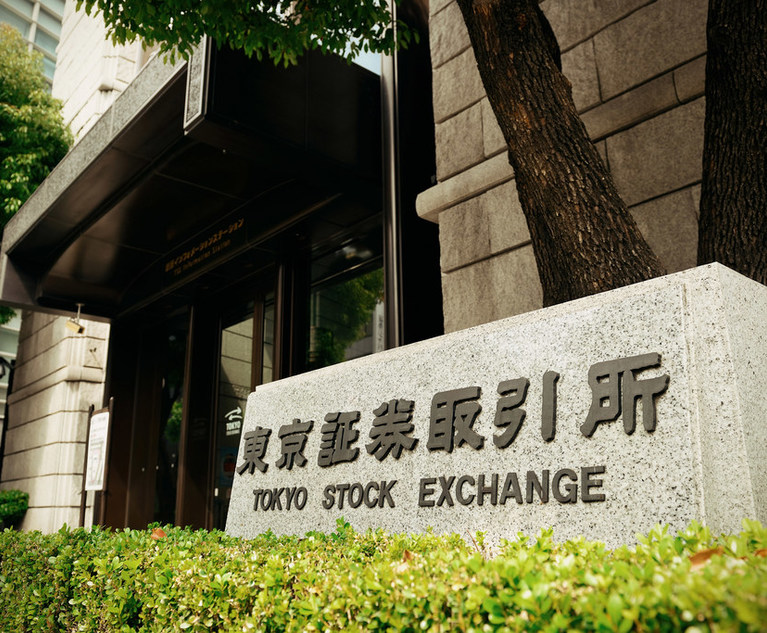On 30 January, 1972, 13 civilians on a civil rights march were shot dead by the British Army in Londonderry, and a further 13 were wounded. The event became known as Bloody Sunday, one of the most bitter and controversial events in Northern Ireland’s history.
When Tony Blair announced an inquiry into the events of Bloody Sunday in April 1998 it was recognised that an investigation into this politically-charged event faced huge hurdles: a civilian community deeply cynical after the Lord Widgery inquiry 11 weeks after Bloody Sunday, which largely exonerated the army; the military, wary of a witch-hunt in a political climate very different from 1972; and a need to get to the truth about events that happened 28 years previously.
Following the appointment of Lord Saville to head the inquiry, one of its first actions was to look for a law firm to gather the mass of evidence upon which the inquiry would be based. With hearings scheduled to begin in Londonderry in less than 10 months, firms were given 48 hours to put together a pitch. The details of the job were still unknown – the tribunal could not predict the extent of the job or how long it would take, although it seemed likely that a sizeable team would be required in Belfast or Londonderry.
Eversheds won the pitch, despite the tight time-scale. A crucial factor was the ability to assemble a team of 38 lawyers, all specialists in commercial litigation, providing different levels of qualification, and willing to work in difficult circumstances immediately. A mobile office had to be created, with support staff, including administrative staff and IT support staff to underpin the effort.
Using the preliminary hearing of the tribunal as a fact-finding opportunity in July 1998, the logistics of the job became clearer. Finding a Londonderry mobile office that offered a suitable working environment for the team of lawyers, IT and secretarial support was a priority. Other needs of the team also had to be met: hotel accommodation, transport, security, working procedures, communication and an IT database to enable the tribunal to collate the volume of evidence expected.
Detailed briefings and training began to prepare every lawyer on every aspect of the event. Several members of the team, including the lead partner, had developed specialist expertise in interviewing witnesses on harrowing events in their past, having been involved in inquiries into child abuse in care homes. These techniques were tailored to the specific needs of the Bloody Sunday Inquiry where there was a need to tease out highly emotive memories from a quarter of a century ago. All the lawyers involved were trained fully in this regard, and were also briefed fully on the history of Londonderry, the background to the Troubles and the history of the army’s involvement in Northern Ireland.
The IT team developed the necessary systems, compounded by the need to set up the office in the only building in Londonderry that was politically acceptable for the gathering of evidence – the Guildhall – with limited space, power and an environment ill-suited to interviewing witnesses. A support unit of lawyers received, assembled, digested and disseminated information made available to the Eversheds team as it was obtained by the inquiry. This involved thousands of documents, hundreds of previous statements and scores of photographs. This information needed to be tailored to select the relevant information to put to each individual witness.
Gaining the trust and respect of the local community was essential. If civilians could not be persuaded to come forward with their evidence the new tribunal would be seen as flawed and do no more to put the issues of Bloody Sunday to rest than had the Widgery Tribunal. From the first morning in Londonderry, when a symbolic march of survivors, families and supporters entered the Guildhall, the team was aware that any failure to convince the community and their lawyers that the tribunal was thorough and impartial would lead to a withdrawal of support and the collapse of the inquiry.
Eversheds’ straightforward approach and very thorough preparations reassured witnesses to such a degree that many more civilians began to come forward to be interviewed. The initial estimate of a three-week job in Londonderry stretched into six months and more than 600 statements. In a radio interview during the job, local lawyers praised Eversheds’ professionalism and methods.
The ‘Londonderry office’ moved to Newcastle, London, Birmingham and Glasgow. The same straightforward approach was adopted towards the military and police witnesses and hundreds of former soldiers gave statements.
The team expanded until more than 100 Eversheds lawyers and support staff had been involved in the work. When the mobile office ended its travels in Birmingham in October last year, most of the team had worked exclusively on the job for over a year, more than 1,500 statements had been completed, and a database that would enable the tribunal to collate and search for evidence was almost complete.
Witnesses have ranged from the elderly housebound in Londonderry, to senior politicians. Members of the team have travelled to the US and Europe to gather evidence. A military helicopter flew members of the team into Kosovo to conduct interviews. The team has been through bomb scares, war zones and faced enormous suspicion, but has now completed its evidence gathering.
The lead partners were: Peter Jones, Charles Holloway, Gary Pellow and Shirley Denyer.







